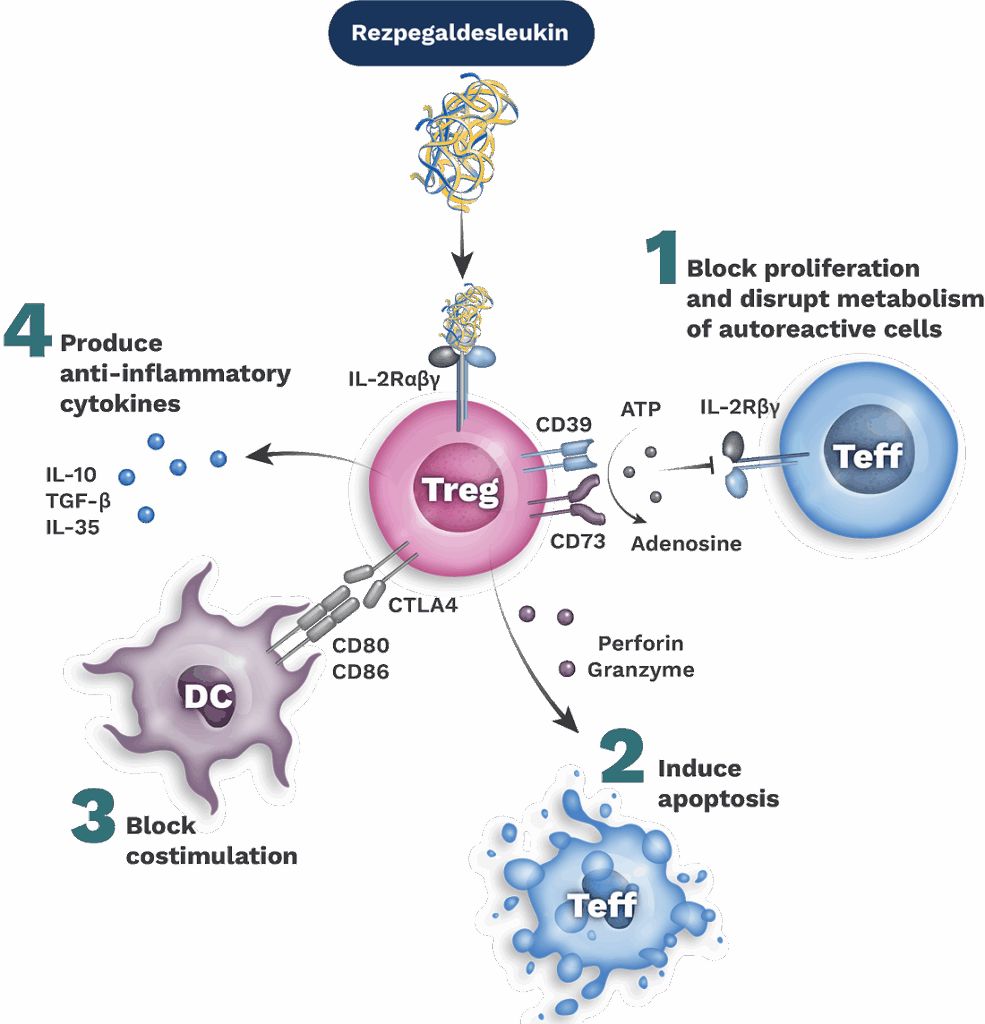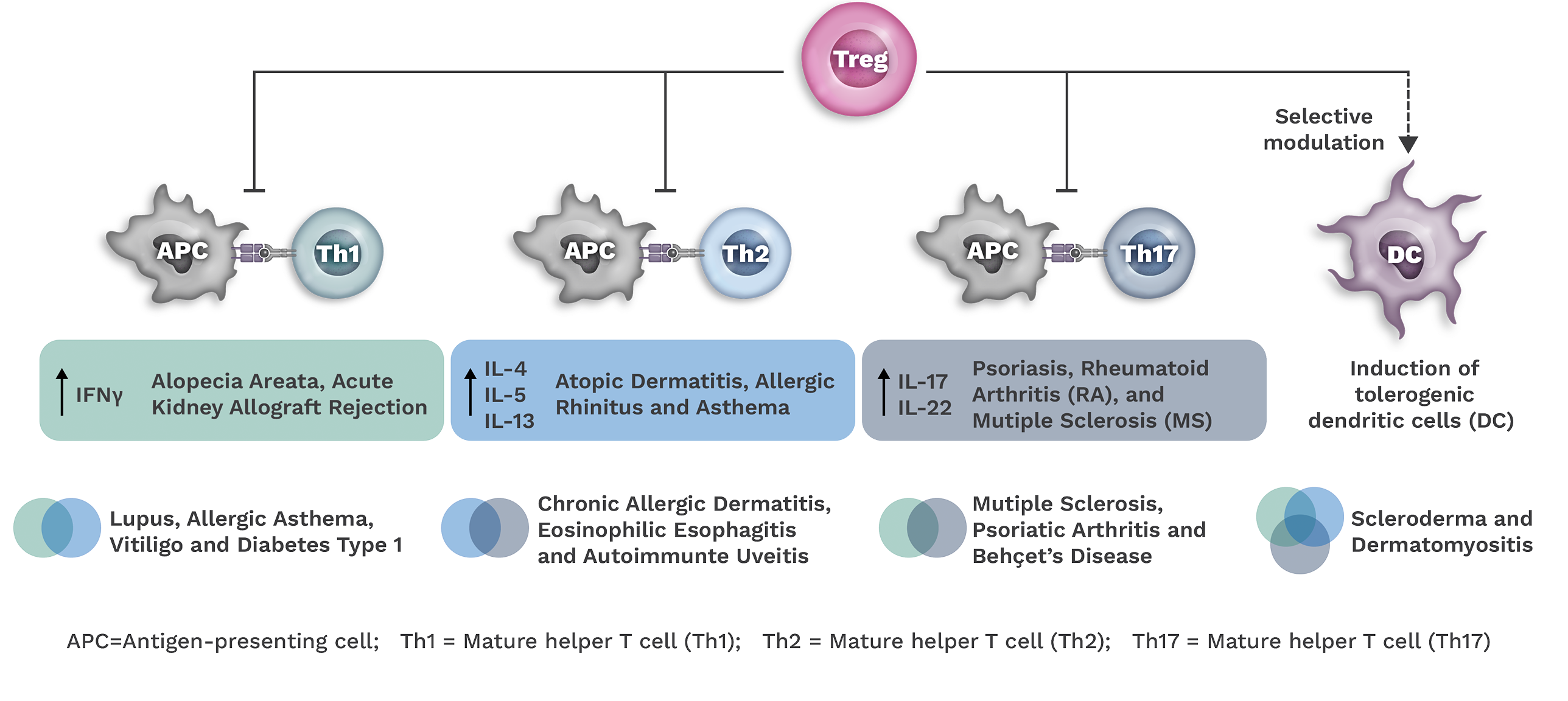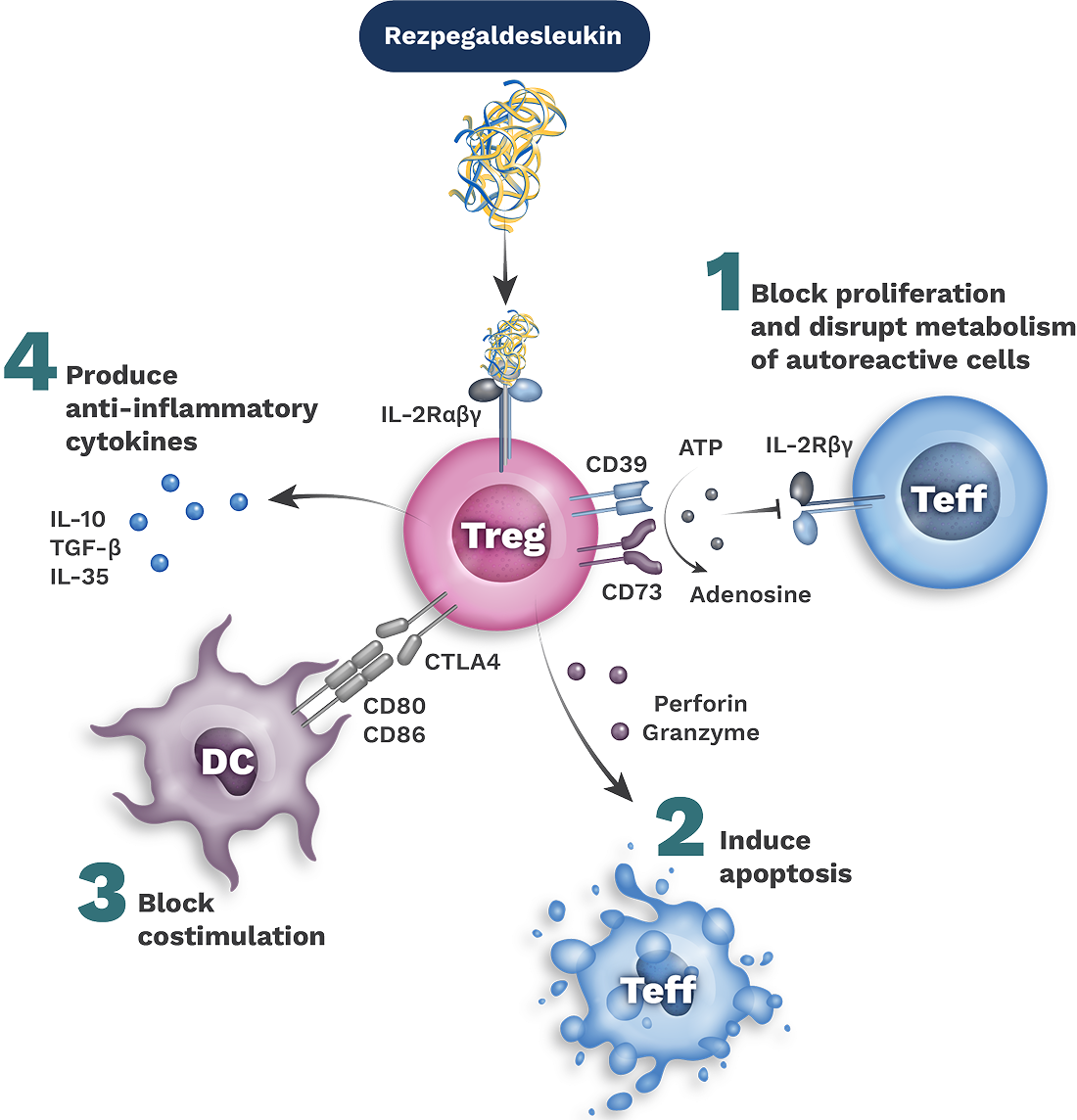
Resolving immune
imbalances
We specialize in creating novel therapeutics that selectively modulate pathways within the immune system.
Our Science
Addressing unmet needs in immune-mediated disease
Regulatory T cells (Tregs) are a specialized subset of T cells that play a critical role in regulating immune responses. These cells help prevent the immune system from attacking the body’s own tissues (autoimmunity) and control the intensity of immune responses to foreign invaders.
Research suggests that suboptimal levels of Tregs and lack of Treg cell activity may underlie the development of autoimmune and inflammatory diseases.
We believe a critical part of treating autoimmune disorders is the achievement of Treg homeostasis, which requires maintaining a stable population of Tregs within the body, ensuring they can effectively suppress immune responses and prevent autoimmunity.
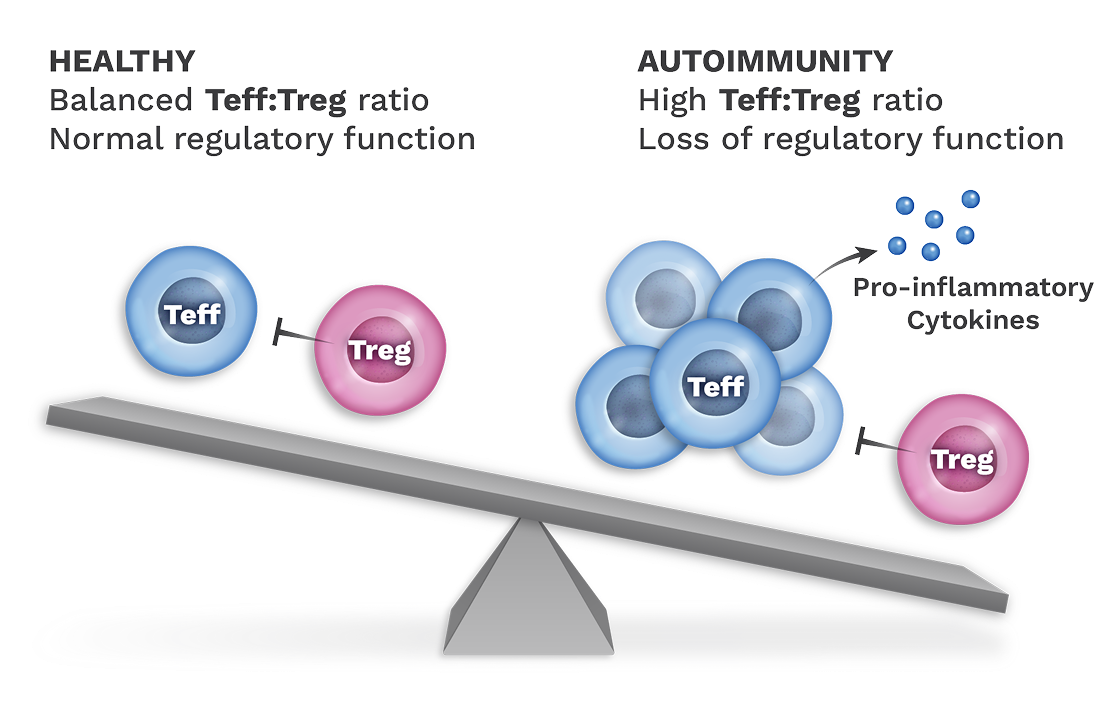
An immune cell imbalance between effector T cells and regulatory T cells can lead to a range of chronic autoimmune and inflammatory conditions.
Translating scientific expertise into innovative therapies
Tregs act as a master immune-modulator upstream of the pro-inflammatory cytokine pathways, which drive Th1-, Th2-, and Th17-mediated inflammation. By increasing the number and functionality of Tregs in the body, multiple cytokine pathways can be modulated. This is an approach that aims to reduce inflammation more effectively than specific antagonist mechanisms of any one pathway.
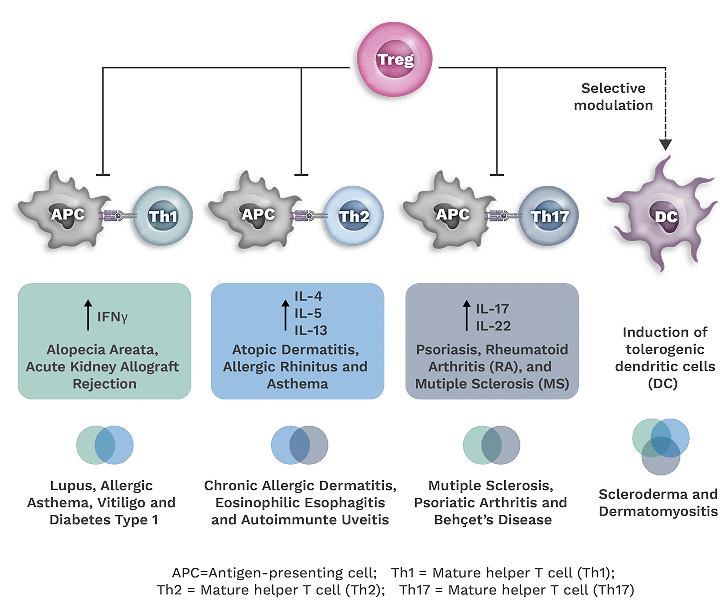
Rezpegaldesleukin
Rezpegaldesleukin is an innovative biologic acting as an agonist to target interleukin-2 receptors located on regulatory T cells. This biologic investigational therapy is being developed to address a number of immunology disorders.
By directly targeting the IL-2 receptor on the Treg surface, rezpegaldesleukin proliferates Tregs and increases their functionality.
